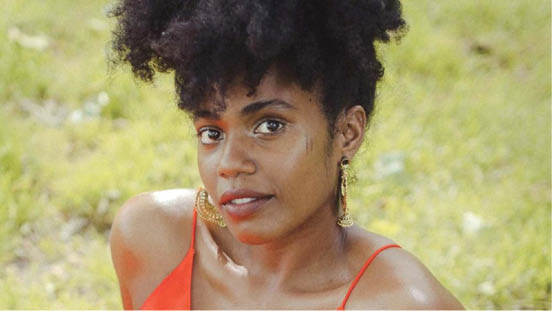Non-binary Nigerian nominated for a women’s fiction prize
Nigerian author Akwaeke Emezi, who identifies as non-binary made the longlist of the 2019 Women’s prize for fiction. Emezi’s debut novel, ‘Freshwater’, is among the sixteen books competing for the prize once won by Chimamanda Ngozi Adichie. Chair of judges for the prize, Professor Kate Williams, said, “It is a historic moment. We’re very careful […]

Akwaeke Emezi
Nigerian author Akwaeke Emezi, who identifies as non-binary made the longlist of the 2019 Women’s prize for fiction.
Emezi’s debut novel, ‘Freshwater’, is among the sixteen books competing for the prize once won by Chimamanda Ngozi Adichie.
Chair of judges for the prize, Professor Kate Williams, said, “It is a historic moment. We’re very careful not to Google the authors while judging, so we did not know. But the book found great favour among us, it is wonderful. They are an incredibly talented author and we’re keen to celebrate them.”
She said the judges were not aware of Emezi’s gender identity when they selected ‘Freshwater’, but checked that Emezi was happy to be longlisted before the announcement.
One of the judges, Arifa Akbar defended the nomination, because Emezi, although born a woman, does not identify as either male or female and prefers to be referred to as ‘they’.
In an article published in The Guardian, UK, Akbar wrote, “I hope the book will be seen for what it is and the discussion not hijacked by gender politics axe-grinders. The prize is about judging the books, not the authors, so when I and fellow panellists read Emezi’s debut, ‘Freshwater’, we were struck by its voice, its story and its innovations. It is an edgy coming-of-age story about cultural alienation, sexual violence and identity. Its central character, Ada, is a Nigerian college student in the US whose inner world is inhabited by ogbanje or trickster spirits; Asughara, a female, and Saint Vincent, a male.”
Another Nigerian on the list is Oyinkan Braithwaite for her novel, ‘My Sister the Serial Killer’, which tells the story of a Nigerian woman whose sister has a habit of killing her boyfriends.
The Women’s prize for fiction was first established in 1992, the year after no female authors were shortlisted for the Booker prize. It was first awarded in 1996 to the late Helen Dunmore.
The shortlist will be announced 29 April, with the winner revealed on 5 June.
